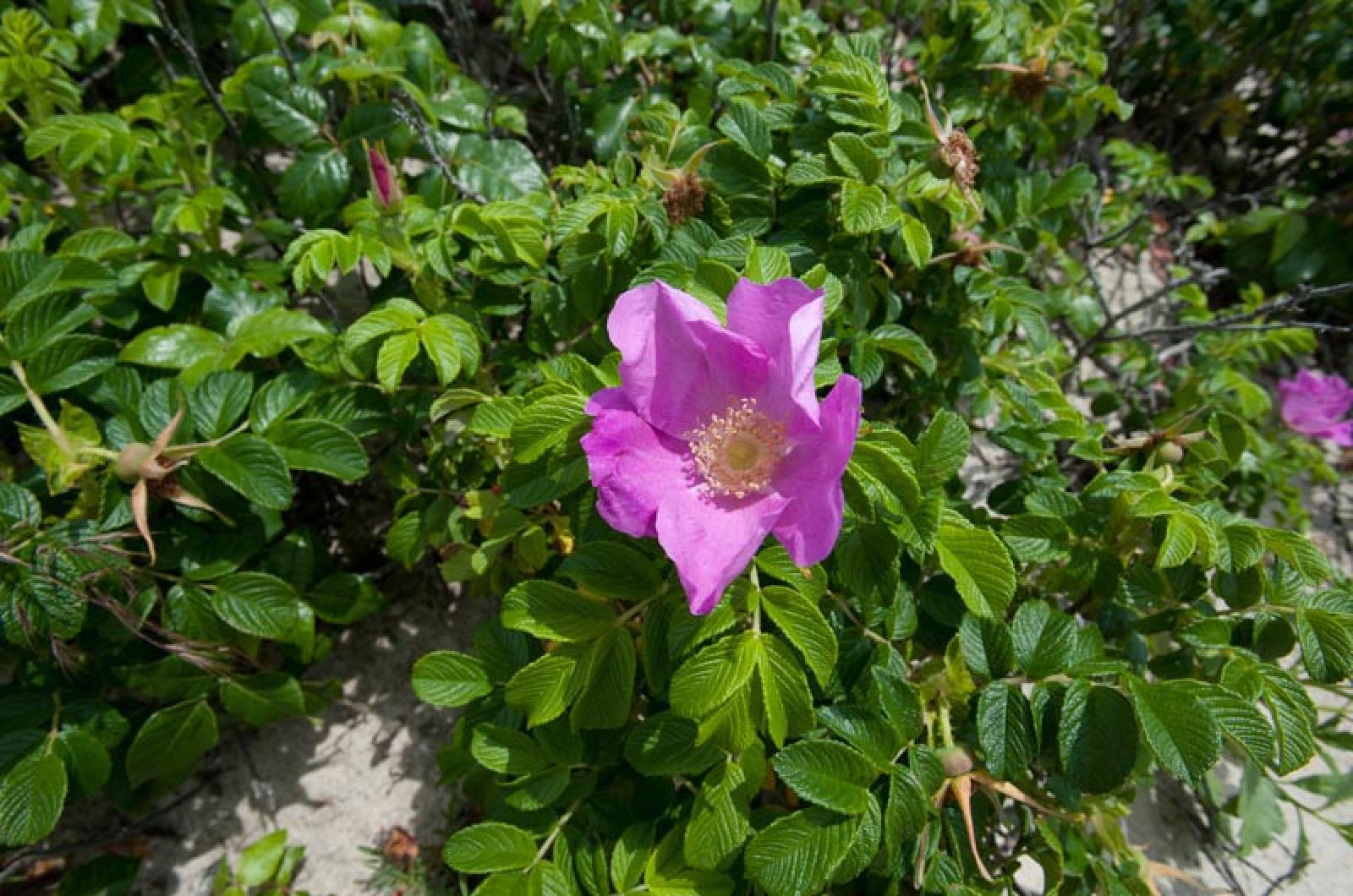Take time to smell the roses.
It is perhaps the best display I have seen in a long time. Beach Road is ablaze in blooms of rosa rugosa. Pink, red and white flowers cover the dunes and are putting on quite a fantastic show.
Arthur Conan Doyle, physician and author of the Sherlock Holmes series, was a devotee of these fabulous flowers. “What a lovely thing a rose is!” he wrote. “Our highest assurance of Providence seems to me to rest in the flowers. All other things, our powers, our desires, our food are all really necessary for our existence in the first instance. But this rose is an extra. Its smell and color are an embellishment of life, not a condition of it. It is only goodness which gives extras, and so I say again that we have much to hope from the flowers.”
French poet Jean Richepin put it more succinctly when he wrote: “One may live without bread, not without roses.”
Beach roses bring the hope and excitement of a Vineyard summer, though their origin is quite a distance from our shores. These far-flung flowers are even considered by some to be an invasive plant species.
Asia is their homeland and in Japan they are called hamanasu, which translates roughly to “shore eggplant.” This name likely refers to the fruit, called hips, which will appear later in the summer and are collected and eaten for their healthy and tasty virtues. These hips may be the reason that they washed up on our shores, since the fruit can float for up to 40 weeks in either fresh or salt water — so long-distance travel is a snap for these seeds.
From the hips, one can make jam or jelly, puree, soup and sorbet, among other delicacies. The hip is a rich red orb, providing another name for this plant: beach or sea tomato. And this rose, by any other name, is just as nutritious. They are a potent source of vitamin C, iron, calcium and phosphorus. In fact, during World War II soldiers were given rosehips to replace citrus so they would be assured of receiving some vitamin C to prevent scurvy.
For now, though, your hunger for the hip must be denied. Be patient; they will be here before you know it! However, the flower is its own delicious delicacy.
Thus, do take time to also taste the roses. Beach rose petals are a treat in their own right. You can pick them right off the plant and partake on the beach or collect a bunch to create tea, wine, syrup or as a flavoring for candy (think of those delicious rose-flavored Turkish delights). I even found a recipe for rose petal pesto that substitutes some of the basil with rose petals. Can’t wait to try it!
You can love beach roses for their flowers, fruit, beauty and persistence, and I do for all of those reasons. The tenacity of this non-native species will make some native plant purists balk; but for others, they are worth this cheer: Rose hip — hip — hooray!
Suzan Bellincampi is director of the Felix Neck Wildlife Sanctuary in Edgartown. She is author of Martha’s Vineyard: A Field Guide to Island Nature.




Comments (1)
Comments
Comment policy »